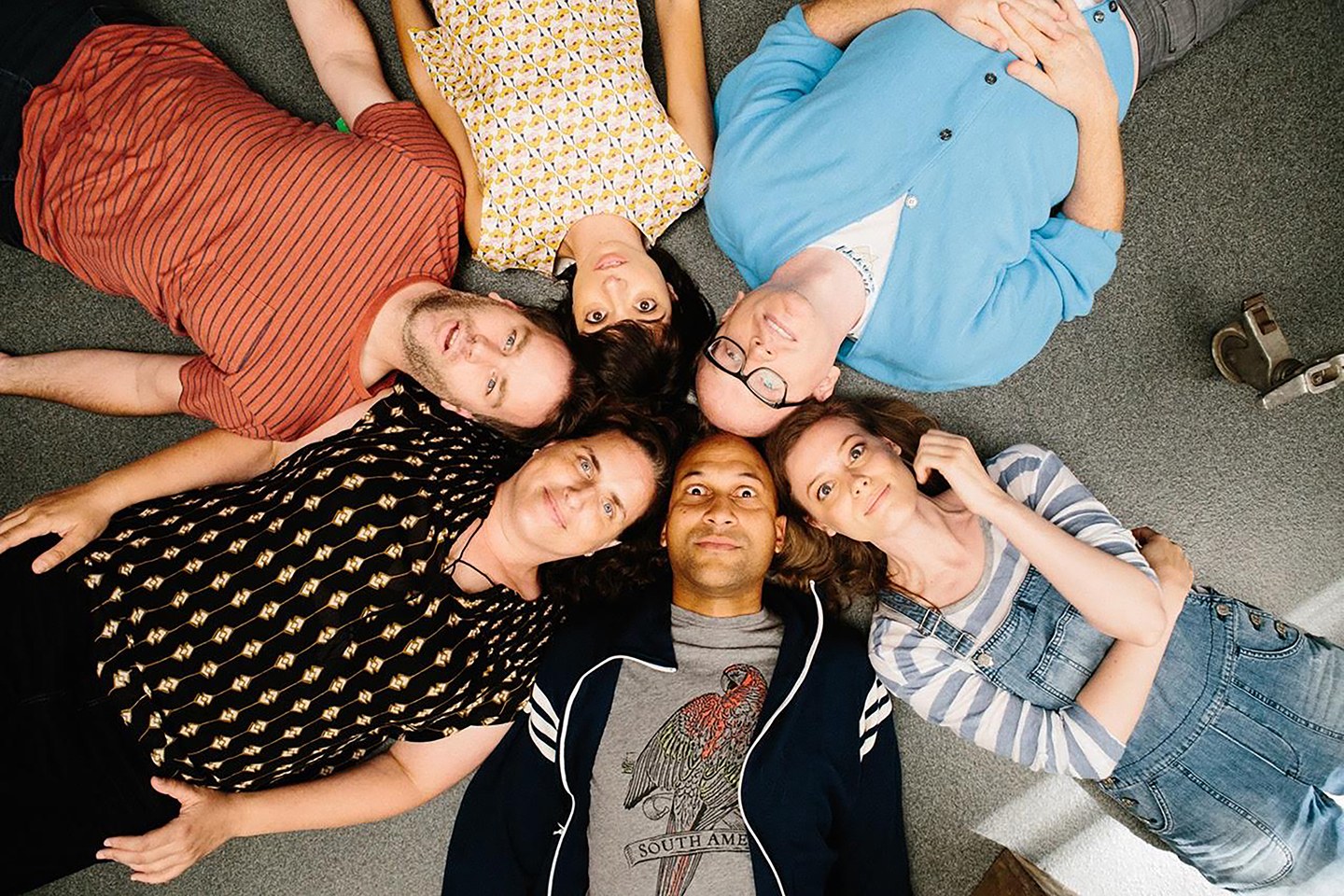If you haven’t heard of Mike Birbiglia until now, I’m not surprised. He’s been in the comedy scene for years, but his productions—which include several one-man shows, stand up acts and a movie—have been pretty under the radar. I had the chance to see his latest off-Broadway act early this summer. He acknowledged to the audience that when we told our friends we were seeing a comedian named Mike Birbiglia they probably responded with, “…Who?”
It’s true.
Birbiglia has been successful and well received, but never a household name. “I get it,” he added at the show, “I’m a niche.”
But with his new independent film “Don’t Think Twice,” Birbiglia is finally getting through to the masses; aside from plenty of praise from critics and audiences, the movie even received a score of 99 percent approval on Rotten Tomatoes. What makes him so compelling is his distinctive style of telling jokes while also telling stories, and weaving them so seamlessly together that the audience might not even realize how skillful it was until it’s over. Being familiar with Birbiglia’s work, I knew “Don’t Think Twice” would incorporate this style. It tells the story of a six-person improv troupe that performs in New York City. Every member has to work a low level job on the side to support themselves and yearns to somehow “make it” in the world of comedy. The ultimate realization of that dream would be to earn a spot on “Weekend Live,” the fictional version of Saturday Night Live. One member, Jack, actually does get this chance, and the film is devoted to showing what this really means for him and the rest of the group.
Most people struggle at times with deciding whether or not to keep chasing dreams that seem futile or to give up in favor of more practical or lucrative pursuits. None more so, I would argue, than college students. College is supposedly the time when we create the educational framework that will guide the rest of our lives. In deciding our majors and which extracurriculars to participate in, we are effectively choosing life courses. Some say to do what you love, but others say to make yourself as marketable to the professional world as possible, and oftentimes those conflict. The cognitive dissonance is real.
Though the characters in “Don’t Think Twice” are older—some of them middle aged—the problems they face apply very specifically to college students. I know plenty of people, who, in high school, thought they were destined to be famous star basketball players or Broadway actors. When they reached college they realized that they had to do something else if they wanted to make money, even if they weren’t interested in it or it didn’t feel right.
Jack, the character who makes “Weekend Live,” is dating another member of the group, Samantha. She is just as talented as Jack and has the potential to be as successful and famous. But she loses the drive, which the others act upon so fervently, to sacrifice anything for fame. She realizes that she’s happy with where she is and doesn’t want things to change.
I think this is also a notion that college students sometimes come to. They realize that fame or wealth is not everything it once seemed. Samantha is probably right to stay where she is, but it requires her to overhaul her objectives and aspirations, and causes differing goals within the comedy group.
This is the real conflict in the story—the tension within the group of friends that arises from separately drifting mindsets. Again, experiencing friendships fall apart as a result of change and growth is universal. But college tends to be where it happens the most, or where it first happens, as people move away from old high school friends and change quickly with new settings and experiences. Each member of the group in “Don’t Think Twice” harvests their own unique set of goals, dreams, jealousies, etc., but they are forced to push them aside so that they can function and perform as a group. “It’s all about the group” is one of the key rules of improv as they are outlined in the movie. Eventually it becomes clear that doing what is best for the group as a whole this is the only way for the comedy troupe to survive, and for each member to keep their sanity.
“Don’t Think Twice”offers a relatable glance into the mindset of the quarter life crisis. Not only is it an entertaining movie, but one I think could even be helpful for college students to watch. It reminds viewers that everyone struggles with the issues of finding their place with friends and career choices.
In doing so, it normalizes issues that can otherwise feel isolating. It also creates a narrative that encapsulates all of this with humor and poignancy, the combination of which is what makes the movie truly great and is also true to life. Sometimes making jokes with your friends is the only way to cope with stressful situations—even tragic circumstances—and no one knows this better than Birbiglia.
Overall, though “Don’t Think Twice” isn’t aimed specifically at a college-aged audience; it holds a certain relevance to students and millenials. It reminds them that success is relative, your path in life is your own decision, and that it’s ok to rely on your friends for support as long as you can also stand on your own two feet.









